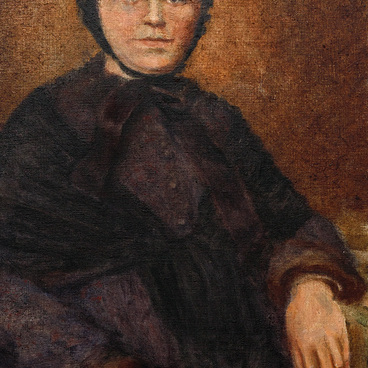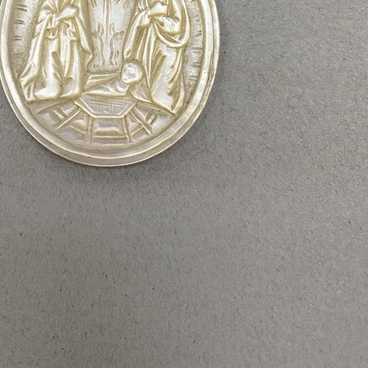The main room of the Pavlov house, where Ivan Petrovich Pavlov was born and raised, was the living room. Located on the first floor, with three large windows, it was exquisitely furnished in the 19th-century fashion: a large oval table, a pier glass, and a piano with ceremonial candelabra. By the living room window, there was a small table on curved legs, standing between two easy chairs. In the old days, it was called an ombre table and was designed for playing cards.
The tabletop had a green cloth covering, where the players could write down the results of each game with chalk. When the game ended and the results were summed up, the chalk notes were erased with a special card table brush. Chalk and brushes were kept in two drawers of the card table. As for throw-in durak and solitaire playing cards, they were kept in wooden or cardboard boxes, decorated with carvings or embellishments. The Pavlovs played cards in the evenings when the whole family gathered together. The mother Varvara set to embroidery, while the father Pyotr and elder sons could play a game.
The academician Pavlov developed his own system for restoring strength after intense work. His favorite choice of recreation was playing durak. On Sunday, at nine o’clock in the evening, players — colleagues and friends — came to the academician’s apartment on Vasilyevsky Island in Saint Petersburg. If someone was late, Ivan Petrovich started looking at his watch, and if the guests were late for 15–20 minutes, he got annoyed and asked them to warn him over the telephone next time. Punctuality was important to him.
Between 9 and 10 pm, a tea party was arranged with conversations, discussions over newspaper articles and news, arguments, jokes and predictions. At two or three minutes to ten, Ivan Petrovich Pavlov said “Mobilization! Mobilization!” — and everyone went into the office, each carrying something specific: one carried a table, the other an armchair, while Seraphima Vasilyevna took out a deck of cards and Ivan Petrovich — his reference book called “Notes”. The game lasted not a minute later than midnight: it was stopped by the striking of the clock. Ivan Petrovich believed that the durak game relaxed his brain, exhausted from constant intensive thinking about scientific work, and provided him with a necessary rest.
The tabletop had a green cloth covering, where the players could write down the results of each game with chalk. When the game ended and the results were summed up, the chalk notes were erased with a special card table brush. Chalk and brushes were kept in two drawers of the card table. As for throw-in durak and solitaire playing cards, they were kept in wooden or cardboard boxes, decorated with carvings or embellishments. The Pavlovs played cards in the evenings when the whole family gathered together. The mother Varvara set to embroidery, while the father Pyotr and elder sons could play a game.
The academician Pavlov developed his own system for restoring strength after intense work. His favorite choice of recreation was playing durak. On Sunday, at nine o’clock in the evening, players — colleagues and friends — came to the academician’s apartment on Vasilyevsky Island in Saint Petersburg. If someone was late, Ivan Petrovich started looking at his watch, and if the guests were late for 15–20 minutes, he got annoyed and asked them to warn him over the telephone next time. Punctuality was important to him.
Between 9 and 10 pm, a tea party was arranged with conversations, discussions over newspaper articles and news, arguments, jokes and predictions. At two or three minutes to ten, Ivan Petrovich Pavlov said “Mobilization! Mobilization!” — and everyone went into the office, each carrying something specific: one carried a table, the other an armchair, while Seraphima Vasilyevna took out a deck of cards and Ivan Petrovich — his reference book called “Notes”. The game lasted not a minute later than midnight: it was stopped by the striking of the clock. Ivan Petrovich believed that the durak game relaxed his brain, exhausted from constant intensive thinking about scientific work, and provided him with a necessary rest.




